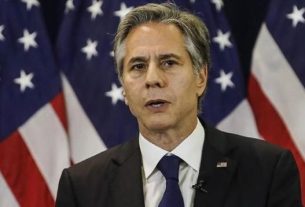The United States has signaled it will ease steep tariffs on European steel and aluminum only if the European Union agrees to moderate its enforcement of landmark digital regulations, according to officials following high-stakes meetings in Brussels on Monday, according to Euro News.
U.S. Commerce Secretary Howard Lutnick, a close Trump administration ally who helped negotiate a summer trade deal introducing 15% tariffs, said Washington is willing to consider lowering duties—but only if Brussels adopts a “more balanced” approach to policing American tech giants under its sweeping Digital Markets Act (DMA) and Digital Services Act (DSA). He clarified that the U.S. is not demanding the rules be scrapped, but rather applied in a way that “works for us.”
European leaders, under pressure from their own industries, are seeking relief from the 50% tariffs imposed by Washington in June on EU steel and aluminum. Despite a July trade agreement in which the EU slashed tariffs on most U.S. industrial goods to zero, the higher American duties on metal imports have remained in place.
Lutnick and U.S. Trade Representative Jamieson Greer met with EU trade ministers and Commission Vice President Maroš Šefčovič for a working lunch described by diplomats as “open and direct.” The pair also sat down with EU Tech Commissioner Henna Virkkunen, who emphasized that the DMA and DSA remain core pillars of the bloc’s digital strategy, signaling little appetite to dilute them further.
Šefčovič countered U.S. accusations of discrimination, insisting the rules apply equally to all companies operating in the single market. But Greer pushed back sharply, arguing that enforcement is “quite aggressive at times” and warning that U.S. firms should not see their global revenues shaped by foreign regulation.
Tensions have intensified as Brussels pursues major cases against Amazon and Microsoft under the DMA and recently fined Google €2.95 billion for antitrust violations firm moves that Washington views as targeting American tech dominance.





